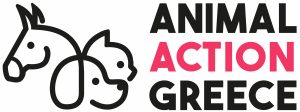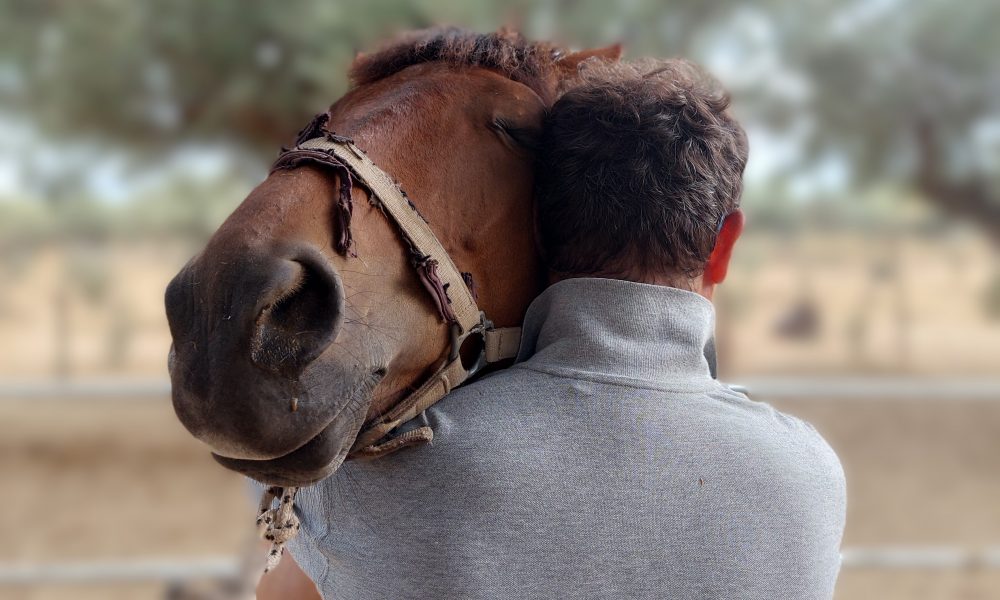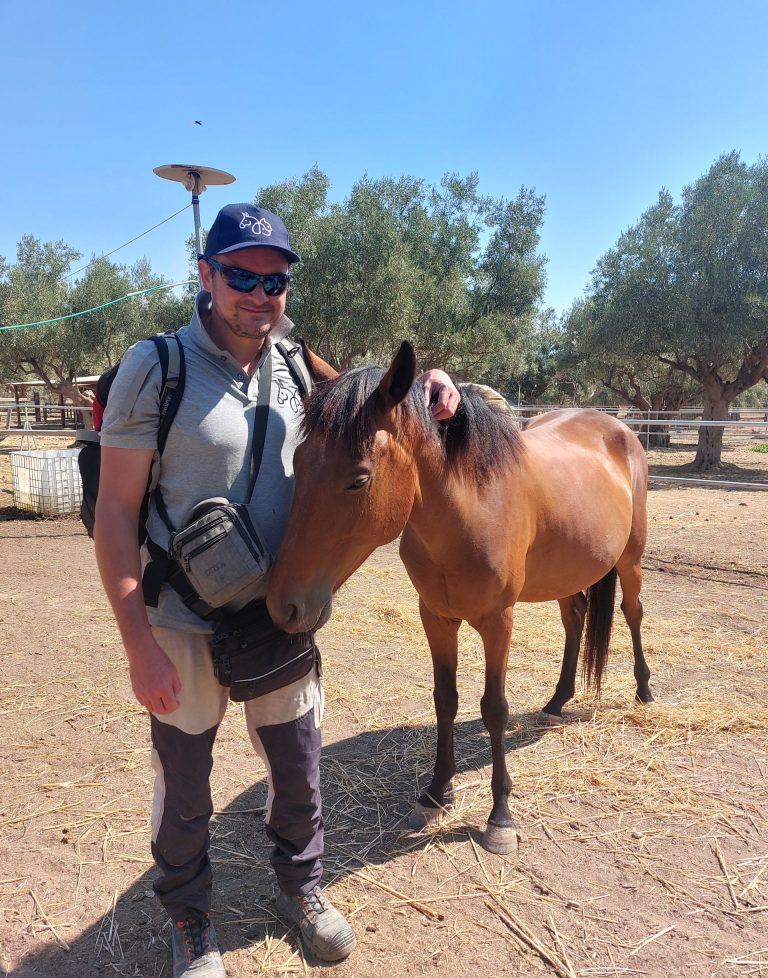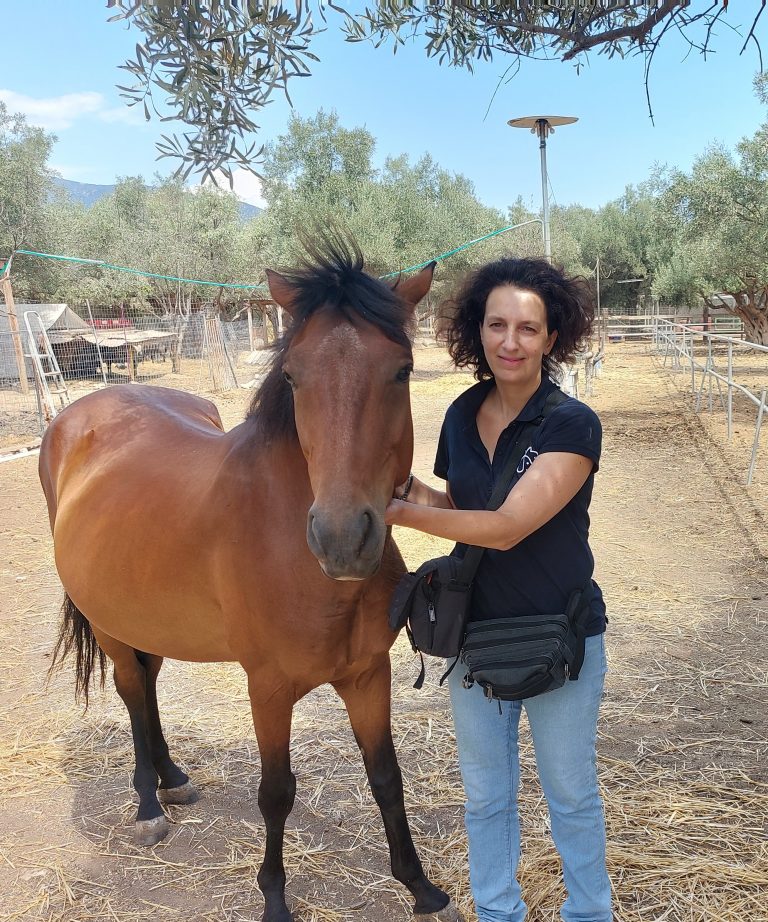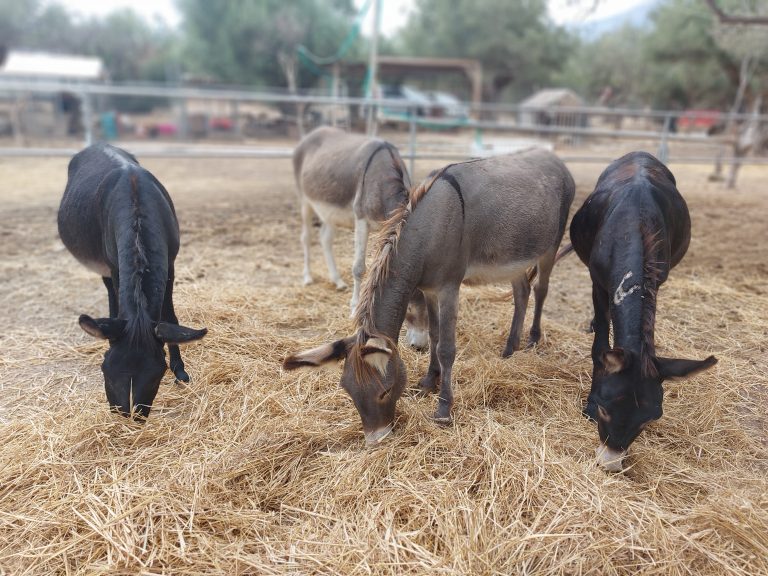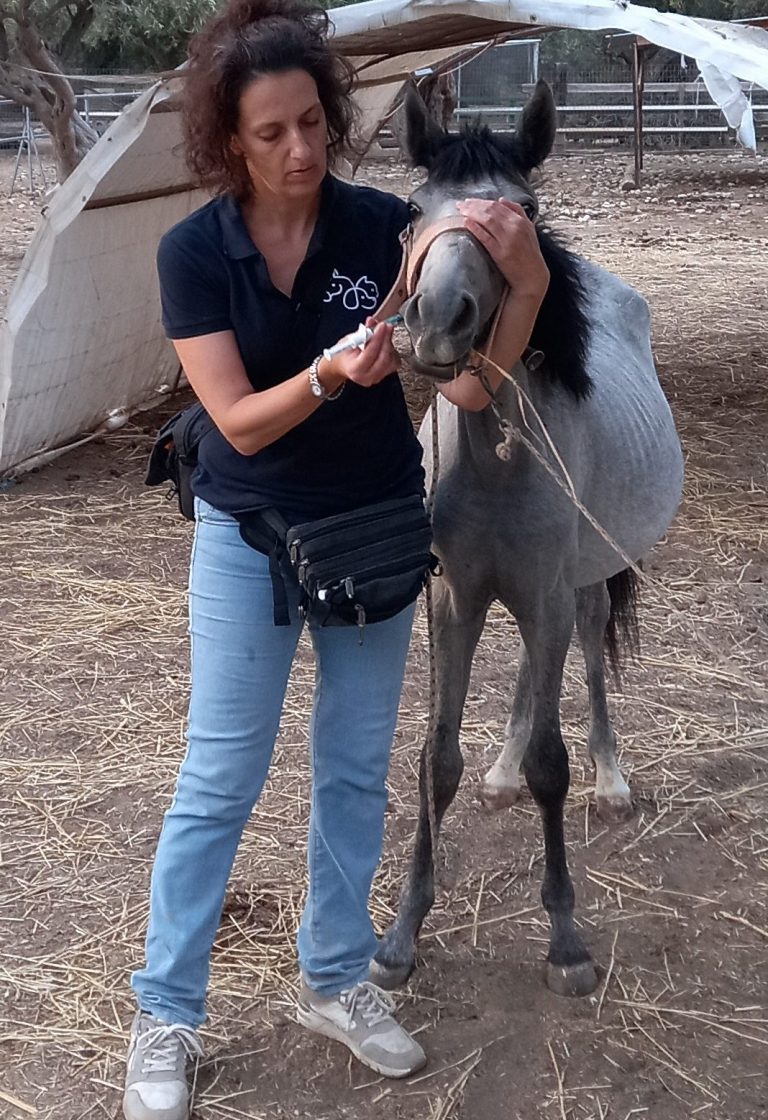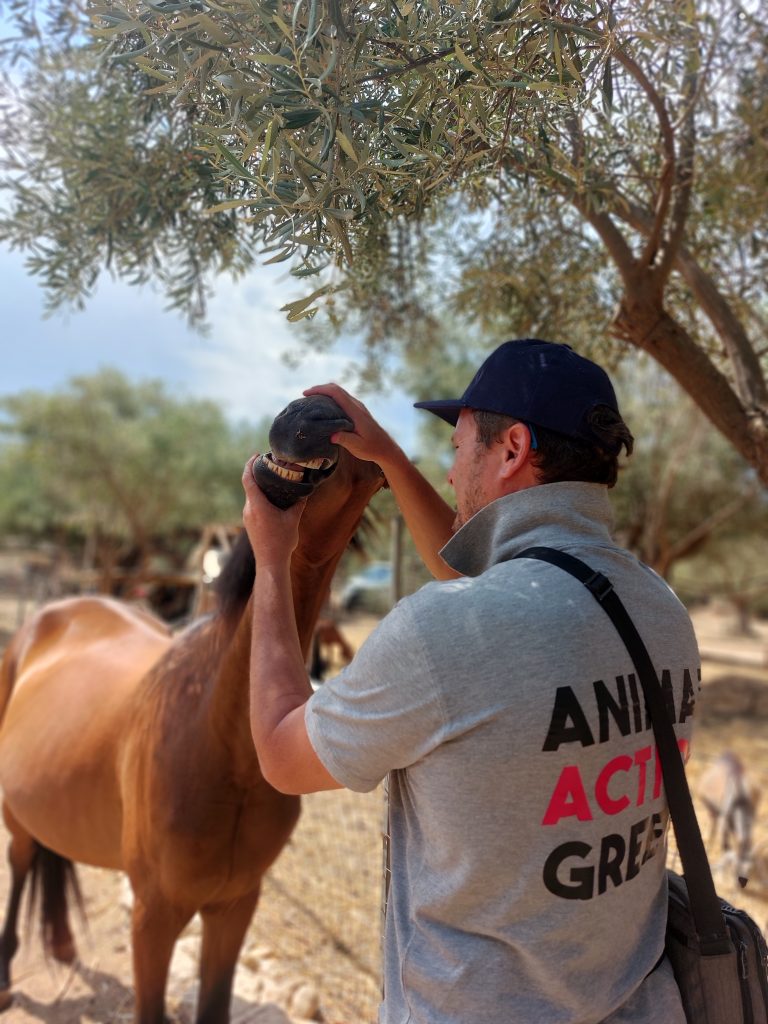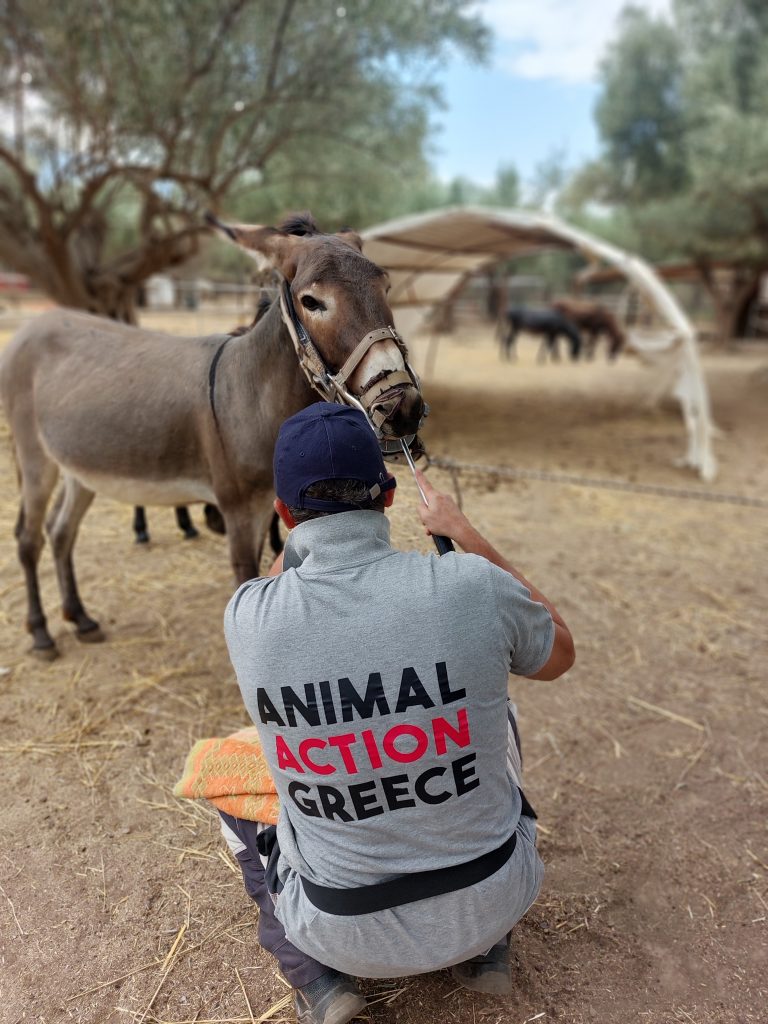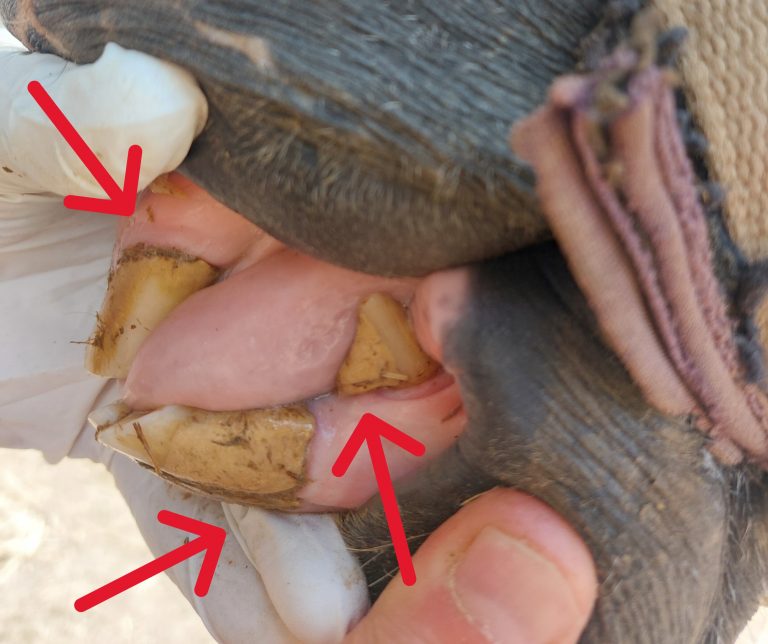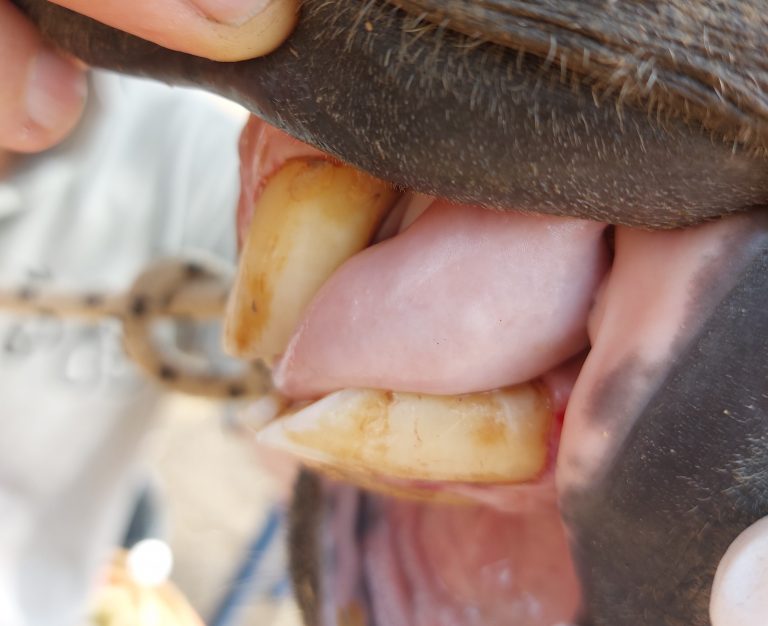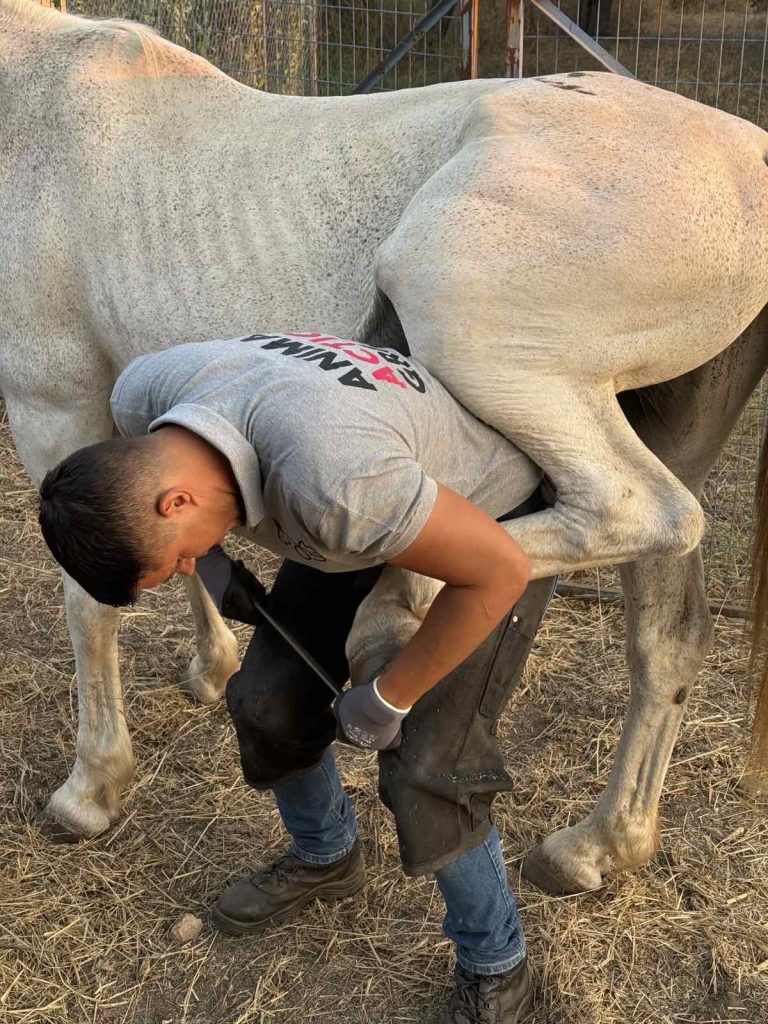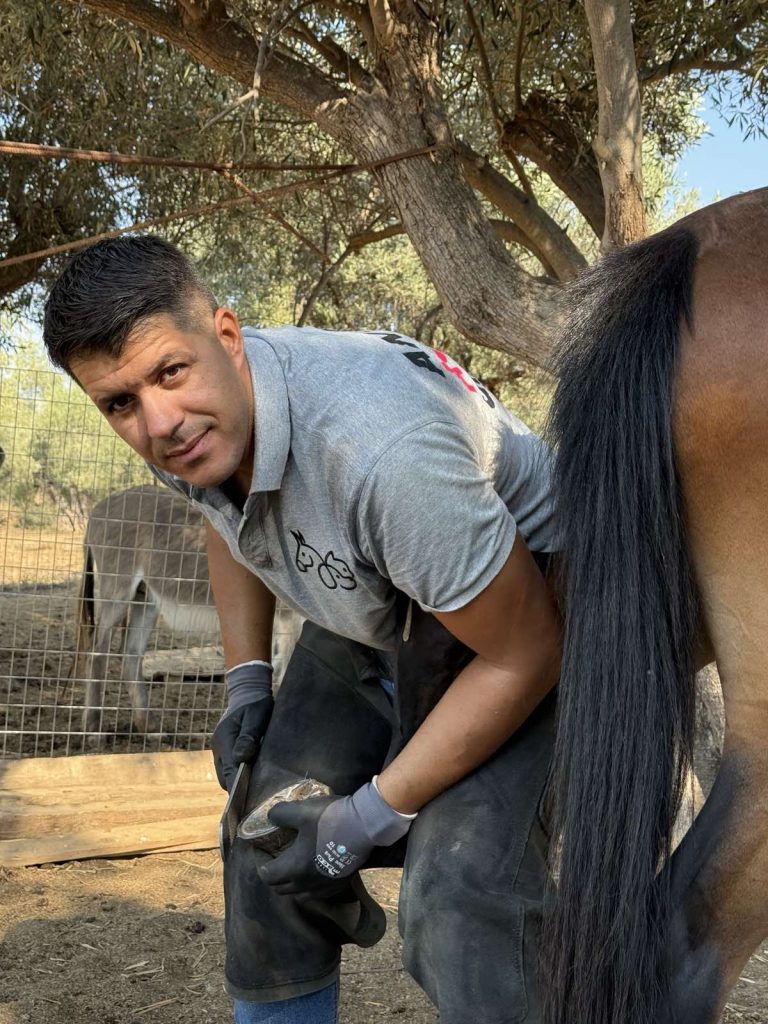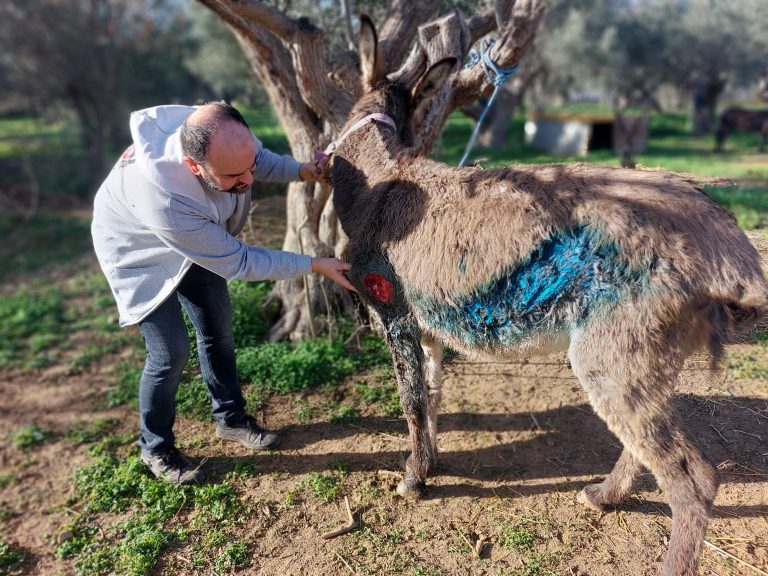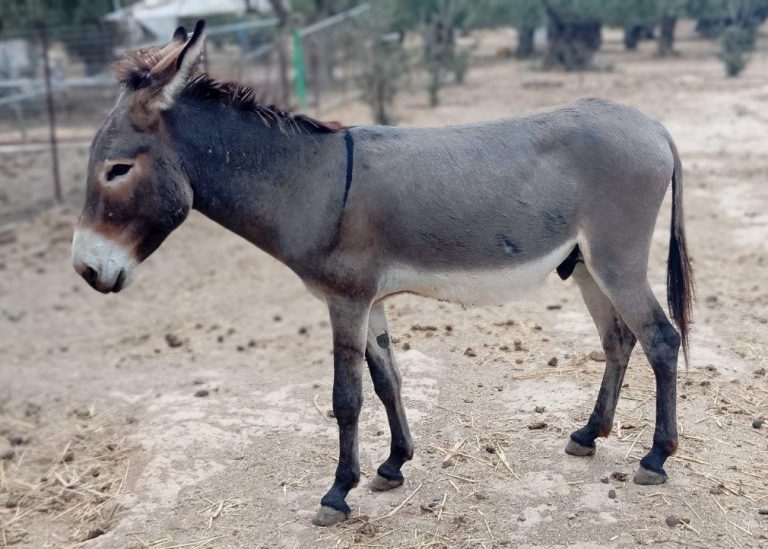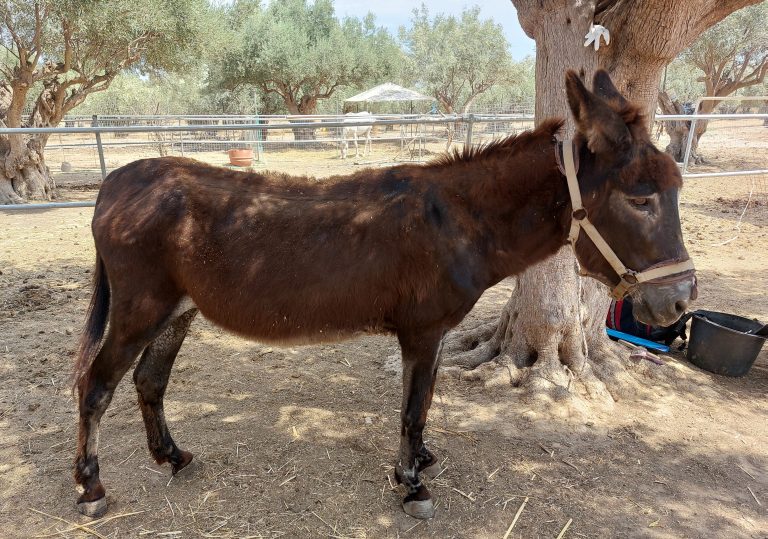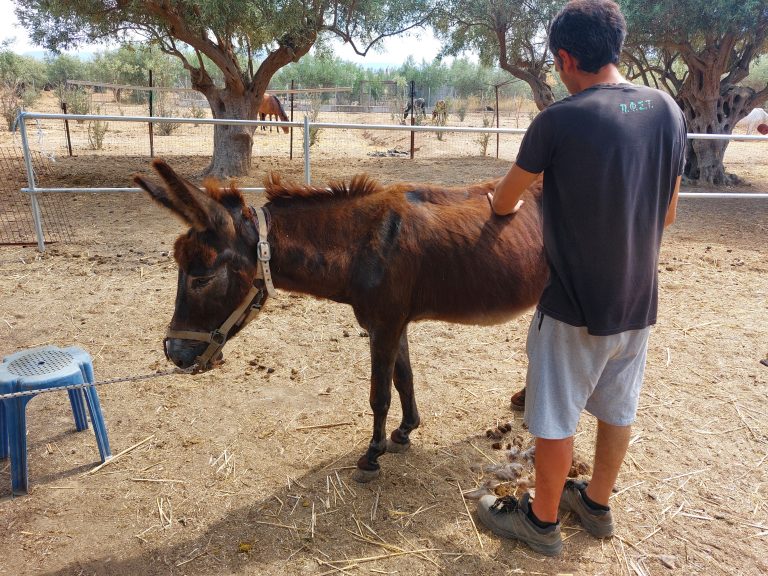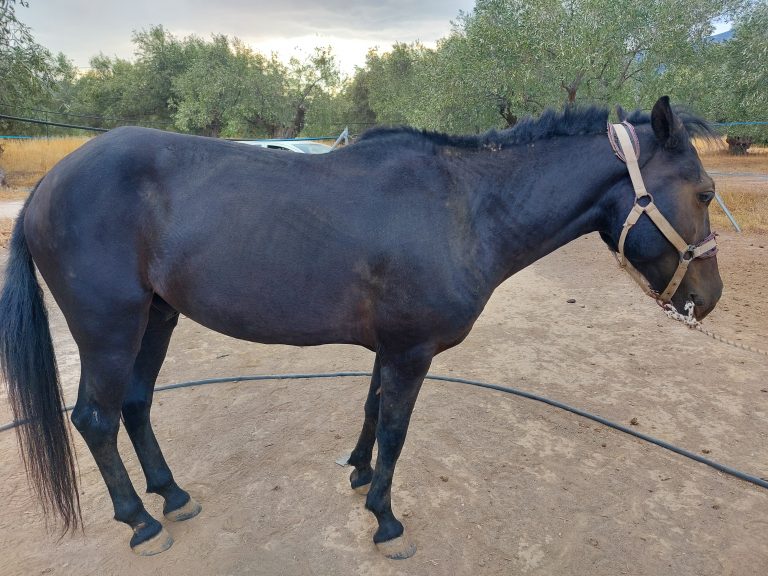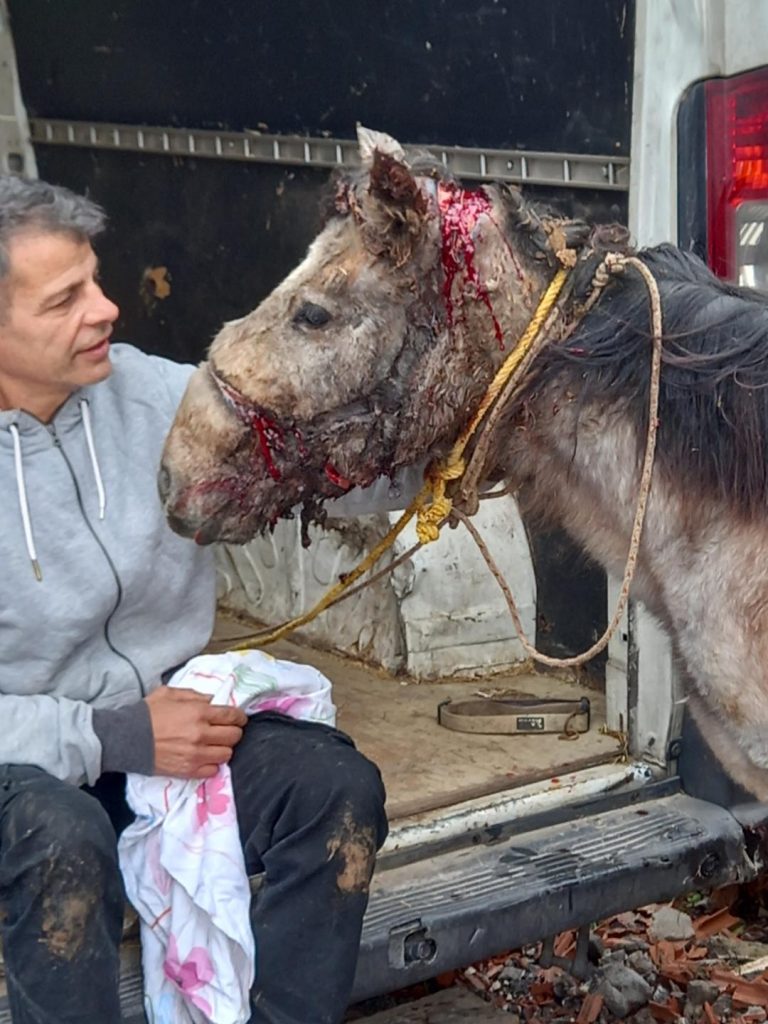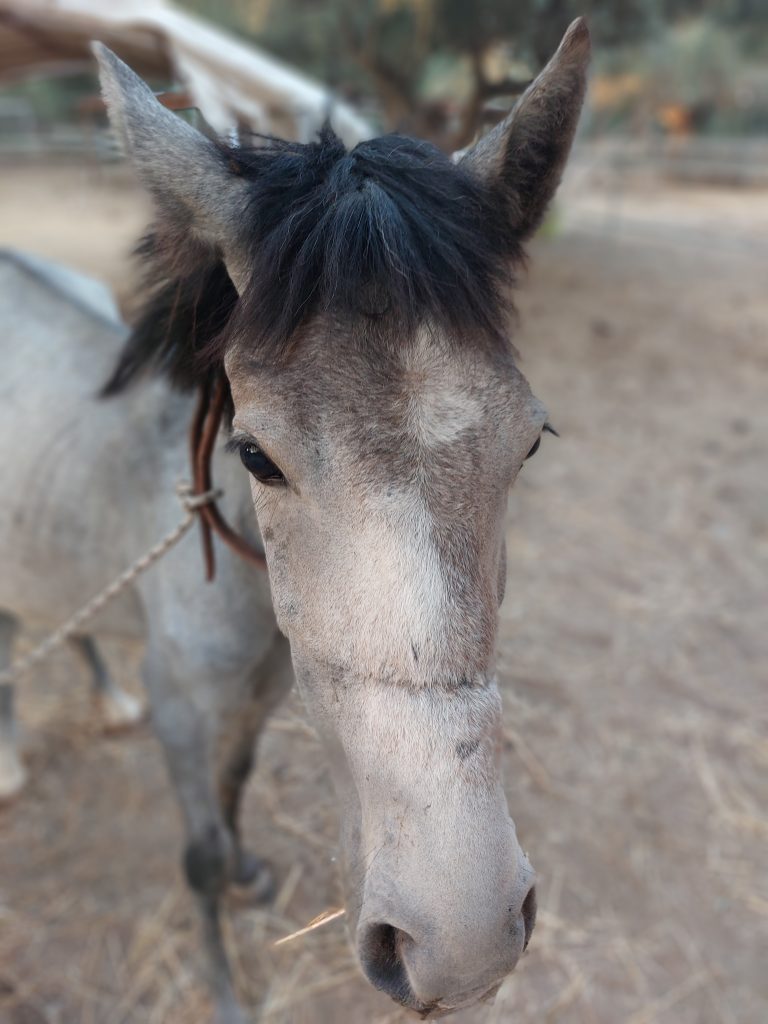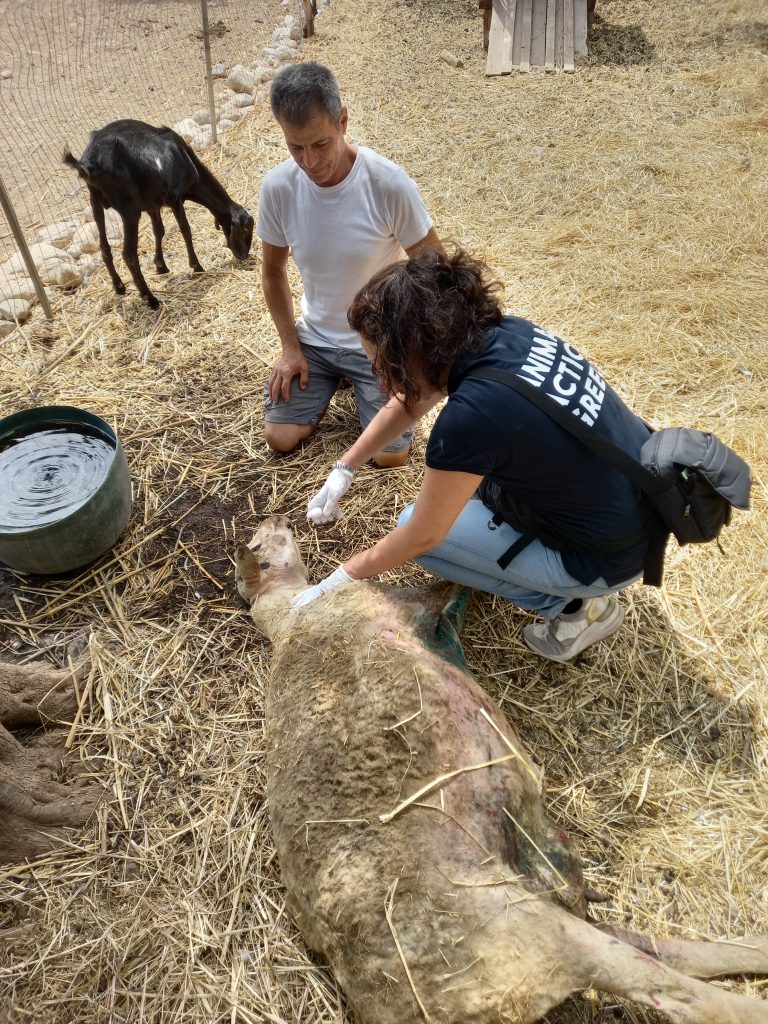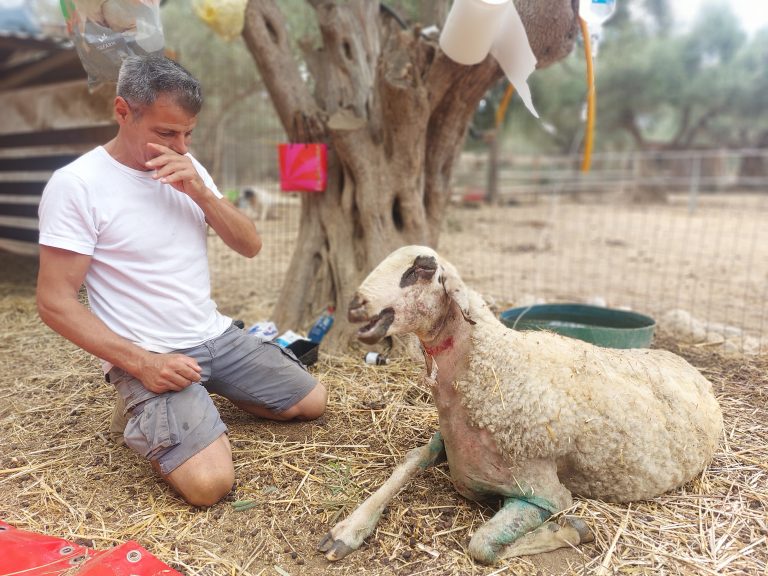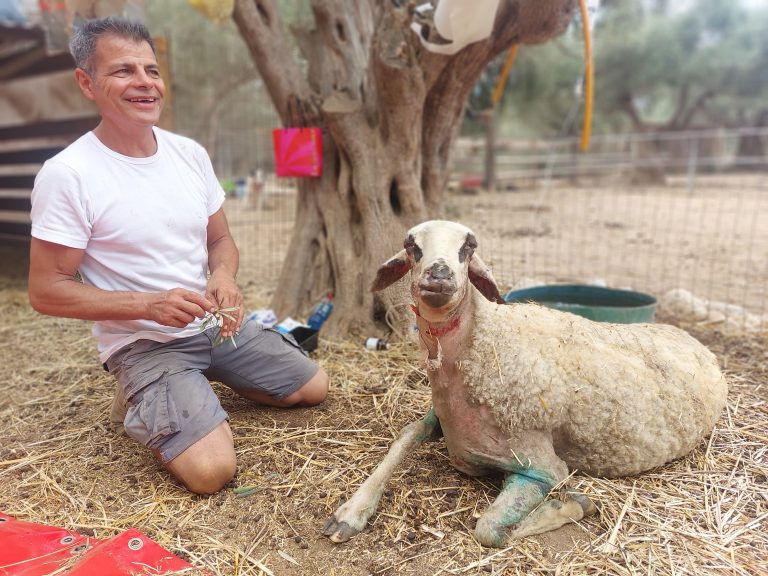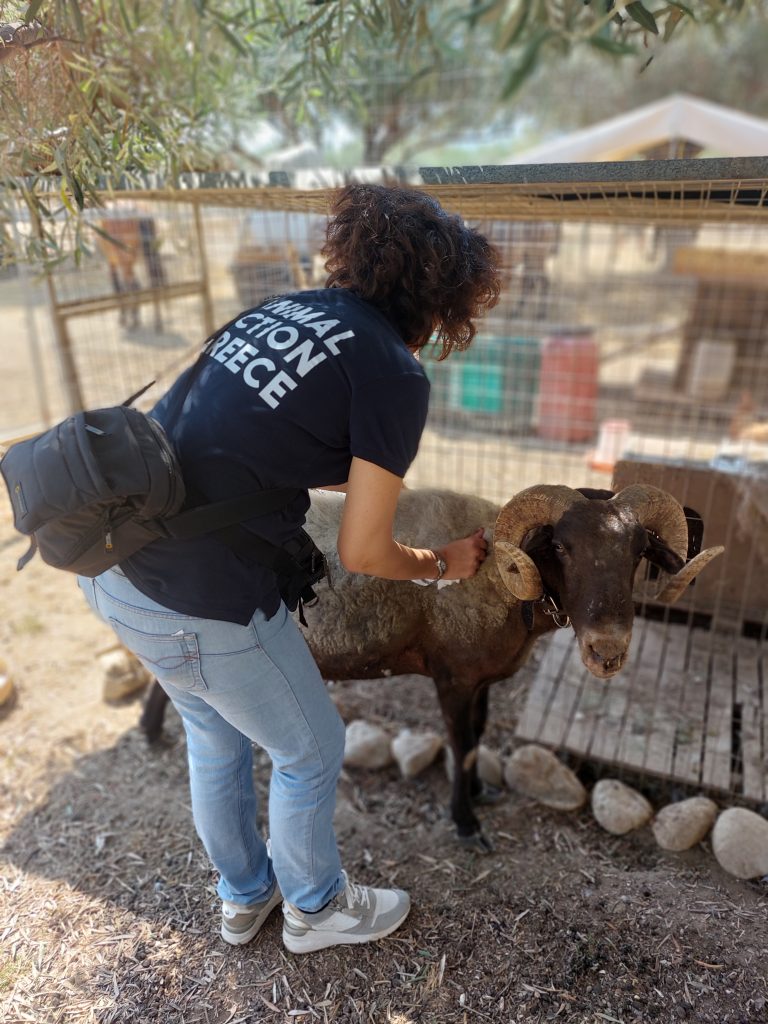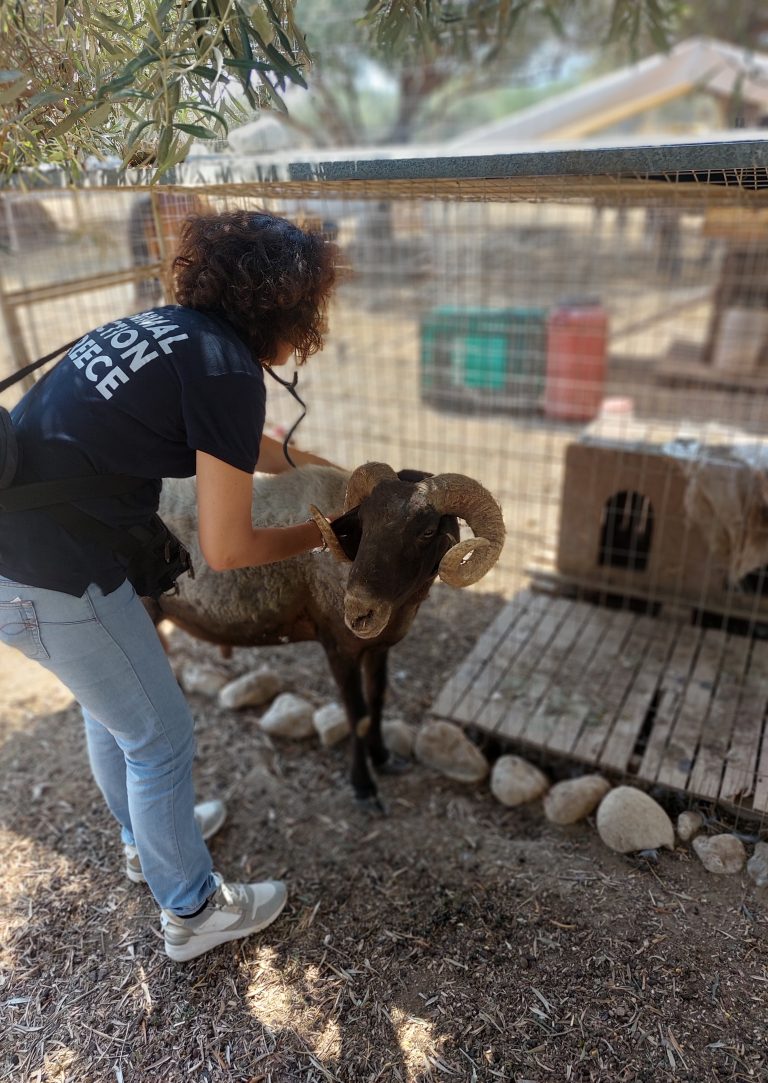In August 18, 2025, following a request from the welfare group Arcadia Animal Welfare, the veterinarian and Equine Care Programme Coordinator Elisa Geskou, along with equine dental technician Alkis Gkeskos, visited Paralion Astros to provide veterinary and dental care to the shelter’s equines. Farrier Vaios Bakratsas had provided farriery services a few weeks earlier, on July 17th.
Progress and challenges
Out team was welcomed by some familiar faces. The team treated all 20 residents of the shelter, excluding a mare and her foal who remain difficult to catch. Although the volunteers recognise the importance of proper handling and have made significant progress with many previously phobic equines, the shelter’s heavy daily workload leaves little time for working with the more challenging individuals. The shelter would greatly benefit from the support of an experienced horse handler who could visit regularly and help desensitize the more unhandled animals—ideally, until they are comfortable with wearing headcollars and having their feet picked up.
During our last visit, several horses and donkeys were found to be underweight due to past neglect from previous owners. This year, however, most equines were in ideal body condition—a testament to the effectiveness of last year’s dental treatments and improved feeding protocols. Only a few newcomers, recently rescued from abuse or dealing with ongoing health issues, were underweight. These individuals received dental treatment, and veterinary guidance was provided to group them separately and feed them a tailored diet of extra, soft, special food and nutritional supplements to aid in weight gain.
Health checks and encouraging improvements
We were again pleasantly surprised by the improvement of the condition of the premises and the complete absence of ectoparasites—including even stable flies. Only one horse suffers from sweet itch, a seasonal allergy caused by midge bites. Thanks to regular preventive antiparasitic treatments and prompt care of any skin irritations, this horse’s condition has dramatically improved compared to last year. Elisa’s previous advice to reduce this horse’s weight had also been followed, and the animal was found to be in ideal body condition.
Elisa examined all equines and administered worming treatment to the two youngest. A follow-up worming is planned for all equines in the coming weeks.
Dental and farriery care
Alkis performed dental checks on all equines, rasping sharp enamel points and hooks. These were generally minor in permanent residents but more pronounced in newly rescued arrivals. Dental calculus buildup, which can lead to gingivitis and periodontitis if left untreated, was removed from the incisors and canines of several animals, significantly improving their oral health.
Vaios trimmed the hooves of equines needing farriery care. Many hooves had overgrown, and some animals showed signs of thrush and white line disease. Three recently arrived horses—including one former carriage horse—benefited from having their shoes removed and their hooves trimmed, leading to increased comfort and improved mobility.
All animals were cooperative and showed their appreciation for dental and farriery care in the best way they can—by standing calmly and allowing the work to be done.
Notable cases
Poulagris, the young donkey previously attacked by wolves in 2022, has made a full recovery and now appears healthy and strong, with a shiny coat and no visible signs of his past injuries.
Pyrimachos, the elderly donkey who survived the Arcadia wildfires in 2021, continues to thrive at the shelter and only his scars remind everyone what he had gone through. Although his body condition remains underweight due to worn-down teeth, Elisa provided a specialized feeding protocol to help him regain condition.
Piratis who was found obese last year in body condition score 5, is now in ideal condition (body score 3), after his carers successfully followed weight-loss guidance . Obesity poses serious risks to equine health—including hyperlipaemia, laminitis, arthritis, respiratory issues, and impaired thermoregulation—so maintaining a healthy weight is critical for long-term well-being.
Elisa was happy to meet and see the remarkable transformation of the young mare she helped remotely a few months ago. Diotima, as she was named after the Greek mythology, had been discovered last year in agony, covered with blood with a headcollar embedded in her skin. Though still cautious and somewhat difficult to catch, she responded positively to handling and enjoyed her dental, hoof, worming and grooming treatments. Her recovery is nothing short of remarkable.
Emergency Sheep Care
This year’s outreach extended beyond equines. The night before our visit, four sheep (three ewes and one ram) arrived from the wildfire-stricken area of Patra, brought in by another welfare group. They were in critical condition—covered in painful burns, unable to see due to ash-infected eyes, with respiratory distress from smoke inhalation, dehydration and complete loss of appetite. One ewe appeared close to death, lying down and unresponsive.
Immediate veterinary care was provided. Elisa focused on the most critical case, which was later named Flora by the team. After administering fluids and medication to manage pain, dehydration and inflammation, she began to show signs of recovery—lifting her head, drinking and nibbling on food. All four sheep received again further medical care later that night, after equine treatments were completed. The shelter volunteers continue their care efforts following the veterinary guidance with medicines, hydration, healing cremes and aftercare, since the animals are still in recovery. While their recovery is ongoing, their survival so far is a testament to compassion and quick action.
Our team was pleased to reunite with Giorgos, Petroula and Christos—the dedicated volunteers from Arcadia Animal Care who tirelessly care for hundreds of animals every day. From dogs, horses and donkeys to sheep, pigs, goats, hens and ducks, their work is nothing short of heroic. Their passion and resilience are what keep shelters like this running, even in the face of tragedy, limited resources, and overwhelming demand.
They need—and deserve—all the support they can get to continue their vital work.
